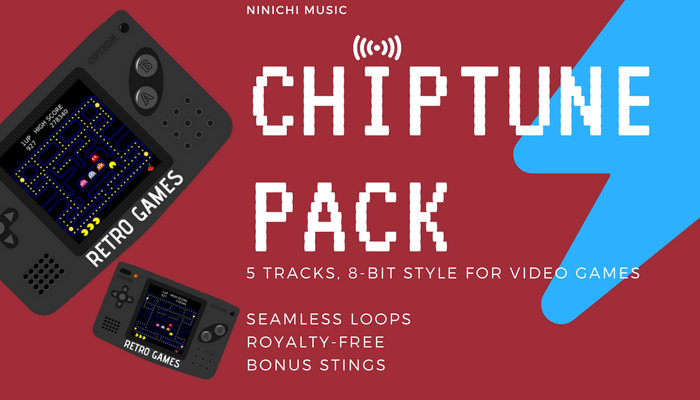Are you thinking about hiring a freelance composer to work with but aren’t quite sure about how it might work or how to ensure that it works well? If so, don’t worry. It is a completely natural feeling especially if you’ve never worked with any freelancers before and it’s important to address your concerns and to make sure that you find the right person for you and your project.
I’m a freelance music composer and have worked with clients and projects all over the world – including working with game developers, filmmakers, podcasters, TV producers, marketers and more (see my homepage to get to know me, Ninichi a bit better!). I work from my home office and have never met many of my clients, yet my working relationships with each one feels really strong. There’s a sense of trust, my clients know that they can rely on me to get the work done and done to a high standard, and that I will always do my best to create music that embodies their visions. They also know that I will always be there to respond to their needs whenever they have something to say, ask, explore, feedback on or to work on further.
I can only share what I have learnt through my own experiences but hope that these will be helpful to you in ensuring that you are able to foster strong working relationships with the freelance composer and actually all freelancers that you decide to work with. So here are a few tips and ideas that come to mind but in essence most of it comes down to good communication.
If you aren’t able to communicate effectively with a freelancer, whether that is a freelance composer or any other freelancer, you won’t have any chance of building a strong relationship with them. This may sound obvious but is so critical and important that I believe it’s definitely worth mentioning. So…
1. Be open, honest and upfront
That is about what you want, need and are hoping for in relation to the music you require for your project. The more you can say about what you’re looking for, the easier it will be for your prospective freelance composer(s) to determine whether or not it’s something they can help you with or not.
2. Offer constructive feedback
Make sure that you are clear about what you like and don’t like about what they’ve done and guide them towards what you’re looking for, but don’t be harsh and be sensitive to the fact that they are most likely trying to deliver good work to you, so if it’s not right the first time, try to be patient and understanding. To do this well check out: How to Communicate Effectively with a Composer.
3. Keep your communication channels open
Make sure that you’re there when they need you. They may want to ask you some questions or get feedback from you on their music. Try to be as prompt as you can in offering your thoughts and in keeping the momentum going. If you’re both available to each other when you need each other, working together will feel quite smooth and easy.
4. Make sure that there isn’t a language barrier
It’s a little tough to say but in truth, everyone needs to be able to communicate with a work colleague (freelance or otherwise) at the same sort of level, so if you feel that they aren’t understanding what you’re asking for, then they aren’t the right freelance composer for you.
5. Don’t get hung up about terminology
Your composer is the specialist in music. You aren’t expected to be nor should you try to be as it could end up confusing everyone. Just try to explain in as simple terms as you can, what you’re after – in terms of mood, style, context for the music etc. and you should be fine.
I myself tend to ignore most music terminology. Obviously I know some and have been trained but I don’t find it helps to use it. I believe that keeping things simple is much better for everyone. Music is universal and there are many different ways to describe it – so go with whatever makes the most sense to you and a good music composer should be able to turn that into something grand! Also see: How to Work Well with a Game Music Composer
6. Listen to their music before contacting them
I find that the people I work best with are those who have taken the time to look around my website and listen to a few examples of my previous works. That means – checking out my music show-reels, looking at my credit list, listening to different examples of my music, and generally getting a feel for the type of music I compose. If you understand what your freelance composer is capable of, you can get a sense of what’s possible for your own project and you can determine this yourself to some degree by listening to what they’ve done already and seeing if you like it.
It’s also easier to work with people when they pick out certain tracks that they liked from your previous works as it gives me a great indication of the type of sounds, style and moods that they particular like.
Also see: How to Choose a Composer for Your Indie Film or How to Choose a Composer for Your Game
7. Offer reference tracks as a style guide
In order to help your freelance music composer understand what you’re looking for and what you have in mind music-wise for your project, it can really help to have reference tracks.
This can be there to offer inspiration and to help the composer understand the mood you’re hoping for, the musical instrumentation that you like and are imagining for your project and the flow of the kind of pieces you like.
8. Don’t micromanage but don’t be elusive either
In order to build a strong working relationship with your freelance composer, don’t micromanage them. The last thing they want is to be having to report back to you every hour or so. They need time to get into the creative zone and to focus on creating great music for you and your project. So, you need to be able to trust whoever you’ve chosen to work with, to be able to get on with the task at hand and to deliver great music to you when they’re ready to.
At the same time, don’t be elusive. Don’t be hard to contact or slow in responding to them if you can help it. Getting feedback on music quite quickly after it has been done is really helpful for composers since they’ll be ‘in the zone’ and it can be really useful to keep that momentum going and to continue working on your project whilst it’s ‘hot’!
If you're looking for a freelance composer to work with and want to have a chat, feel free to contact me now. I'm more than happy to help and explore things further with you. Also check out some of my other articles in case they're helpful too:
Need help with music?
Let me help! Get in touch now :-)!
About the author: Ninichi is a freelance composer and music enthusiast. She has composed the soundtracks and music to several indie games, films, podcasts, web series, commercials and more. Contact her: to explore working with her on your game, film or media project.
Follow her @ninichimusic





















